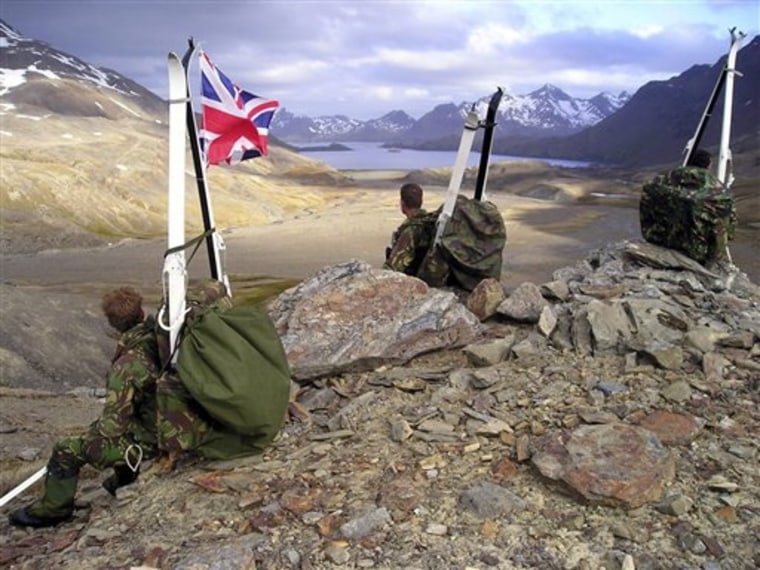It has been a while since anyone could say the sun never sets on the British Empire. But Britain is again trying to extend its reach — this time to potentially lucrative seabeds in the Antarctic and the Atlantic Ocean.
The land grab is part of a U.N. treaty that allows coastal countries to claim a continental shelf up to 380 miles off their shores, and the right to search for oil and natural gas there.
Britain is one of nine countries that have filed such claims, and more are expected.
The UK's aspiration to expand its sovereignty in Antarctica could trigger disputes with Argentina and Chile, which are likely to make overlapping claims. The UK claim would extend from the boundaries of the British Antarctic Territory, land Britain first claimed in 1908.
If the nations go ahead with claims in the Antarctic, they could violate the 1959 Antarctic Treaty and related agreements that set aside the continent as a scientific preserve and prohibit all activities relating to mineral resources except scientific ones, said Robin Churchill, a professor of international law at Dundee University in Scotland.
"I think there's potential for a huge conflict here," Churchill said. "The worst case scenario is that this dispute could lead to the end of the Antarctic Treaty itself, which I think would be a tragedy. The Antarctic Treaty has prevented disputes over the Antarctic, and it's been a framework for a huge amount of scientific research and research into the ozone layer."
Climate contradiction?
John Sauven, executive director of Greenpeace-UK, said Britain's plans are not in keeping with its claims that it will fight global warming. Only six months ago, former Foreign Secretary Margaret Beckett raised climate change before the U.N. Security Council, he said.
"The same Foreign Office is claiming ownership of one of the world's last remaining pristine wildernesses to drill for more fossil fuels," Sauven said.
Under the U.N. Convention of the Law of the Sea, which came into force in 1994, coastal countries have 10 years after they ratify the treaty to claim a larger portion of a continental shelf. Earlier treaties allowed countries to claim territory only 230 miles from the coast.
The other countries that have submitted claims to the U.N. Commission on the Limits of the Continental Shelf are Russia, Brazil, Australia, Ireland, New Zealand, France, Spain and Norway. The commission will rule on each application.
The United States never approved the treaty but hearings about it are under way in the U.S. Senate, according to the State Department. Scientific research already has been conducted in at least eight areas where the U.S. may seek to expand its control, but they don't include Antarctica.
Britain's Foreign Office plans to submit five territorial requests ahead of its May 2009 deadline, including a large seabed around British Antarctica near the South Pole, a spokesman said on condition of anonymity, in line with government policy.
Chile's Foreign Ministry would not comment on Britain's Antarctic claim.
Other Atlantic claims
Another nearby claim in the South Atlantic is the seabed around the Falkland Islands, 8,000 miles from the British mainland. Argentina also claims the Falklands and went to war with the UK over the territory in 1982.
Britain's other claims would be for:
- Around Ascension Island, a volcanic island in the South Atlantic that is a dependency of the British overseas territory of Saint Helena.
- Near the Bay of Biscay in the North Atlantic that lies along the western coast of France and the northern coast of Spain. Britain believes it is entitled to claim northern parts of the continental shelf.
- The Hatton-Rockall basin off Scotland's coast. Rockall is a tiny, uninhabited rock 200 miles off the Scottish coast.
